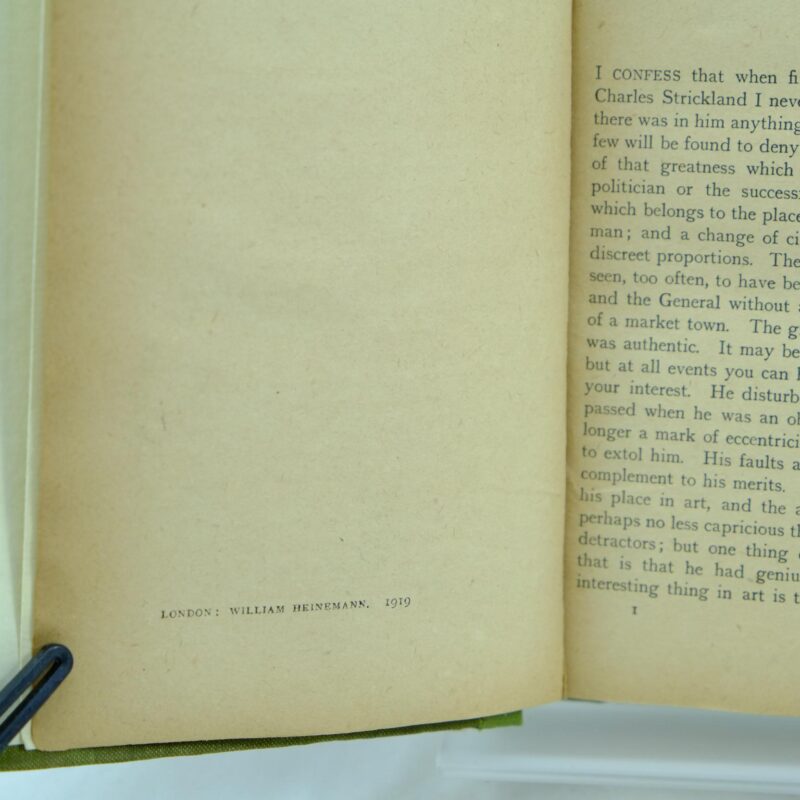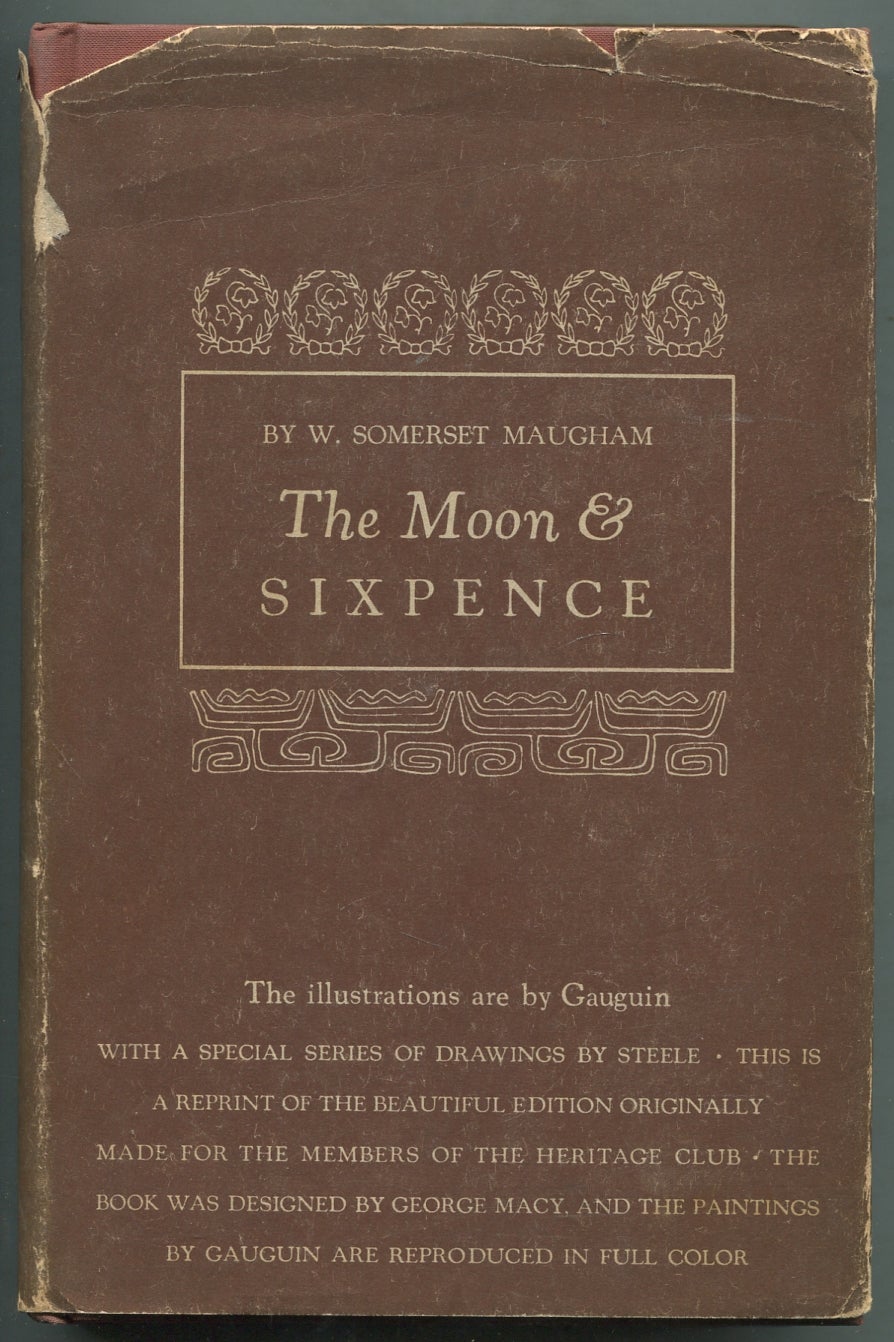


“I do not suppose she had ever really cared for her husband,” he says of one character, “and what I had taken for love was no more than the feminine response to caresses and comfort which in the minds of most women passes for it.” He makes no attempt to endear himself to the reader, revelling in the sort of sexism which, whether or not deliberate, emphasises Maugham – writer or character – as just as ‘old-fashioned’ as I had thought his books to be. The story is told by a narrator who, to all purposes, is Maugham himself: a writer, a watcher and an occasional agent of intervention. However, The Moon and Sixpence is a little more daring in its structure than we might expect. One of the attractions of Maugham for me is his position as a sort of literary guilty pleasure: his books are comforting in their conformity to traditional literary form, a sort of dilute – or at least less bleak – essence of Graham Greene.

The author blurb on these new Vintage Classics editions of his works tell us that “with the publication in 1919 of The Moon and Sixpence, reputation as a novelist was established.” The only other thing I knew about it was that it was inspired by the life of Paul Gauguin, and that the story as described on the back cover seems reminiscent of Philip Larkin’s ‘Poetry of Departures’ (“ He chucked up everything / And just cleared off“), a theme which Maugham would return in his last major novel, The Razor’s Edge. Having read and enjoyed a couple of Somerset Maugham’s less celebrated novels, I thought it was time to turn to the more famous ones.


 0 kommentar(er)
0 kommentar(er)
